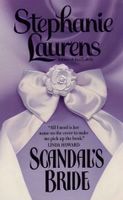No, I'm not dead. The reason I haven't been posting is that on Friday Nov 28th, as I was leaving for Punta del Este for the weekend I received a phone call from my boss, who asked me if I could spend the following week in
Colonia del Sacramento. We'd received an invitation for a week-long course on Local Development that would take place there. Of course, I said yes, so on Monday morning, no sooner had I arrived back in Montevideo that I took the bus and went off to Colonia.
The subject matter of the course was fascinating and I had plenty of time to explore the Historic Quarter of Colonia, a town founded by the Portuguese in 1680 and which is very well conserved. Unfortunately, I couldn't stay for the weekend, because I had a wedding Saturday afternoon and had to vote on Sunday (the option I voted for lost, BTW).
So, here I am, ready to get up to date with my reviews. Some of the books I'll post about I read
ages ago! The first is
After the Night, by
Linda HowardFaith Devlin grew up knowing that Gray Rouillard thought she was trash because his rich father ran away with her pretty, sexy mother. She almost hates him for it, but she can't, because every time he looks at her she wants him more. Gray controls the tiny Louisiana town, but he finds can't control Faith -- until he gets close to her. And underneath the passion, there's a mystery to be solved.
I had many, many doubts about how to grade this one. I did enjoy it a lot, in spite of huge reservations, so it gets a
B+.
I think
After the Night perfectly fits the definition of a guilty pleasure for me. There were almost too many elements I hated here, and yet I found myself enjoying the rest of the book. Some of the things that bothered me:
***
Extreme ickiness: This starts during the first pages, when we have the pleasure of seeing 11 (and later 13) year old Faith panting after 19-year-old Gray, even following him and watching him have sex with his girlfriend. Creepy. And then, the parts about Monica, Gray's sister, having sex with the guy who pretends she's her mother. Yuck. I hated this, it didn't add anything to the story and just grossed me out.
***
Double standards, of mammoth proportions: Much is made of the injustice of Faith being treated like a whore just because that's what her mom and sister are.
She's not,
she's a good girl! Excuse me? The bigger injustice is that Renée and Jodie are despised at all! They are whores, while the men and boys who they do the "whoring" with are just boys and men, nothing wrong whatsoever about their behaviour, noone condemns what they're doing. Gray's father, Guy, runs away with Renée, so she's a disgusting slut who destroyed the family. Meanwhile, Guy is just a fine guy, very charming and likeable, portrayed as a great friend and a good father.
The worst part is that Howard seems to share that opinion. This is what she actually seems to be saying, not simply what a random character thinks. Even our hero, Gray, comes across as a judgemental bastard, when he looks at 13-year-old Jodie (Faith's sister) with contempt, because she's such a slut. Come on, she's 13!
***
Faith: She drove me crazy. She seemed to be an intelligent, independent, hard-working woman, and yet she did things that were so extremely stupid! I mean, why,
why would she move to Prescott again? This is a place where she was reviled all her life, where everyone despised her, where she had no friends. "To find out what happened to Guy Rouillard" is much too contrived as a reason.I really didn't get why she would care so much about this, enough to endanger her life, for what? A chance to gain the respect of people who always despised her? Stupid, just idiotic.
And then there's her lifelong fascination with Gray. I don't tend to like stories where the heroine has idolized the hero since forever and that seems to be the only basis for the "love" she has for him now. This seems to be the case here. Gray treats her so shabbily through most of the book, threatening her, insulting her, even actually running her off the premises of his motel, that I really couldn't find a reason why she would think she loved him. He'd been nothing but a bastard to her, up until that moment, and I thought less of her for not detesting him.
This sounds like a D review, doesn't it? After all this, why a B+? Well, even while I mentally railed at the book for all this, I was enjoying it. For some reason, it delivered that gut-wrenching qualilty that is the reason I read romance.
It helped that this one is probably the hottest book I've ever read. I can remember every single love scene, their first, against a column, the one in the public lavatory, the tender one, at her place, when he explains that he can't think straight enough to speak French to her during love-making... I loved all of them.
Gray ended up being less of a bastard than I thought, at least he had a sense of humour, and it really showed in the last part of the book. He was also nicely protective without being dominating.
Guilty pleasure, period.

